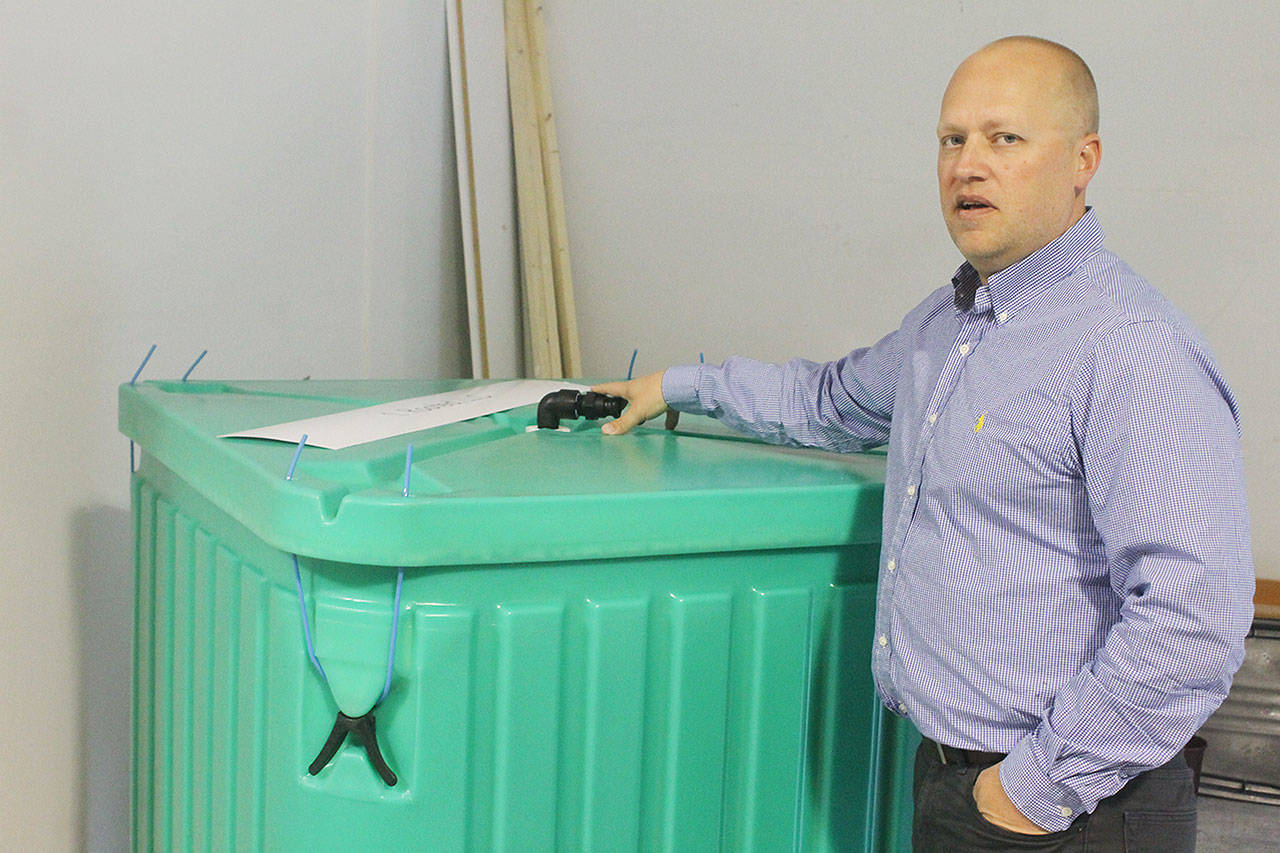Saying goodbye to pets is tough. Fluffy doesn’t have to be gone forever though.
Rooted, an Olympia-based company, is transforming after death care for pets through composting. Instead of burying or cremating furry companions, it offers clients a chance to turn their remains into soil and breed new life in the form of trees, gardens and keepsake plants in the office.
Freeland resident Paul Tschetter is general manager of the company — the first ever pet composting business in the country. He runs it with his childhood friend Greg Schoenbachler.
“I don’t know if we view ourselves as revolutionaries that are going to totally transform the industry,” Tschetter said. “We feel like the market is asking for a solution like this. It’s going to take time, but we’re trying to provide more alternatives that are more meaningful and more environmentally friendly.”
Unlike cremation where “tremendous” amounts of energy are needed to incinerate remains and greenhouse gasses are emitted, Tschetter said Rooted’s composting technique has low energy impact.
Animal remains are placed in pods filled with organic material, such as wood chips, while the temperature and moisture content are monitored. Over the next six to eight weeks, the remains are broken down into nutrient-rich soil. It essentially replicates what happens in nature, but at a quicker rate within a confined and controlled space, Tschetter said.
“The only power we’re using is power to the computer that manages our system, and we have some fans that aerate,” Tschetter said. “Besides that, we don’t add chemicals, we don’t add worms. The only thing we add is organic material.”
It also avoids burials that can either be unearthed or lead to disease.
“It’s a safer way to do it from that standpoint,” Tschetter said.
Tschetter and Schoenbachler recently attended the Washington State Veterinarian Medical Association’s Pacific Northwest Veterinary Conference in Tacoma to present their business model to veterinarians. They were received positively by many of the veterinarians they spoke with, but got some weird looks from others. It may be a hard idea for some to grasp, but Tschetter said there’s an easy way to put people’s minds at ease.
“This is actually the most natural way to deal with mortality that’s available to you as a consumer,” Tschetter said. “We’re literally taking what happens in nature, controlling it and speeding it up. If you really back up and look at what cremation is, it’s kind of crazy.”
Rooted is currently partnering with Western Washington veterinarians to offer its services to the public. Rooted provides transportation of the remains, just like a crematory would, he said.
Tschetter is also hoping to build a client base on South Whidbey.
Clinton resident Bob Murnane, a veterinarian pathologist and clinical professor at the University of Washington, is in favor of the concept and believes it has a strong chance of being successful.
“I really like the idea,” Murnane said. “It’s green. It allows people to receive soil back that can be used however they’d like to.”
“As a vet, I’d like to see it expanded to even larger animals as well. It would require some commercial development, but it could potentially be a whole new industry,” he added.
Murnane also said the island would be an ideal market for the company.
“People on the island tend to like organic farming and green technology,” Murnane said. “I would think it would be natural for the island.”
Useless Bay resident Ernie Merino said he’s a satisfied customer of Rooted. He heard about the company from a “friend of a friend” after his 12-year-old dog died. Merino lives in a rental home with his wife and they were unsure whether burying the dog was appropriate. They also weren’t sure they wanted to go the cremation route.
But, once he learned about Rooted Pet’s green-friendly practices and the ability to plant the soil, he was on board.
“To me, that’s a positive,” Merino said. “There’s also the positive that it gives you something in return as opposed to ashes. You can turn the soil into something.”
“What I love most about it is the sentimental idea. It’s not wasting or consuming tons of energy to heat the furnace. That’s really something for me that I like,” he added.



